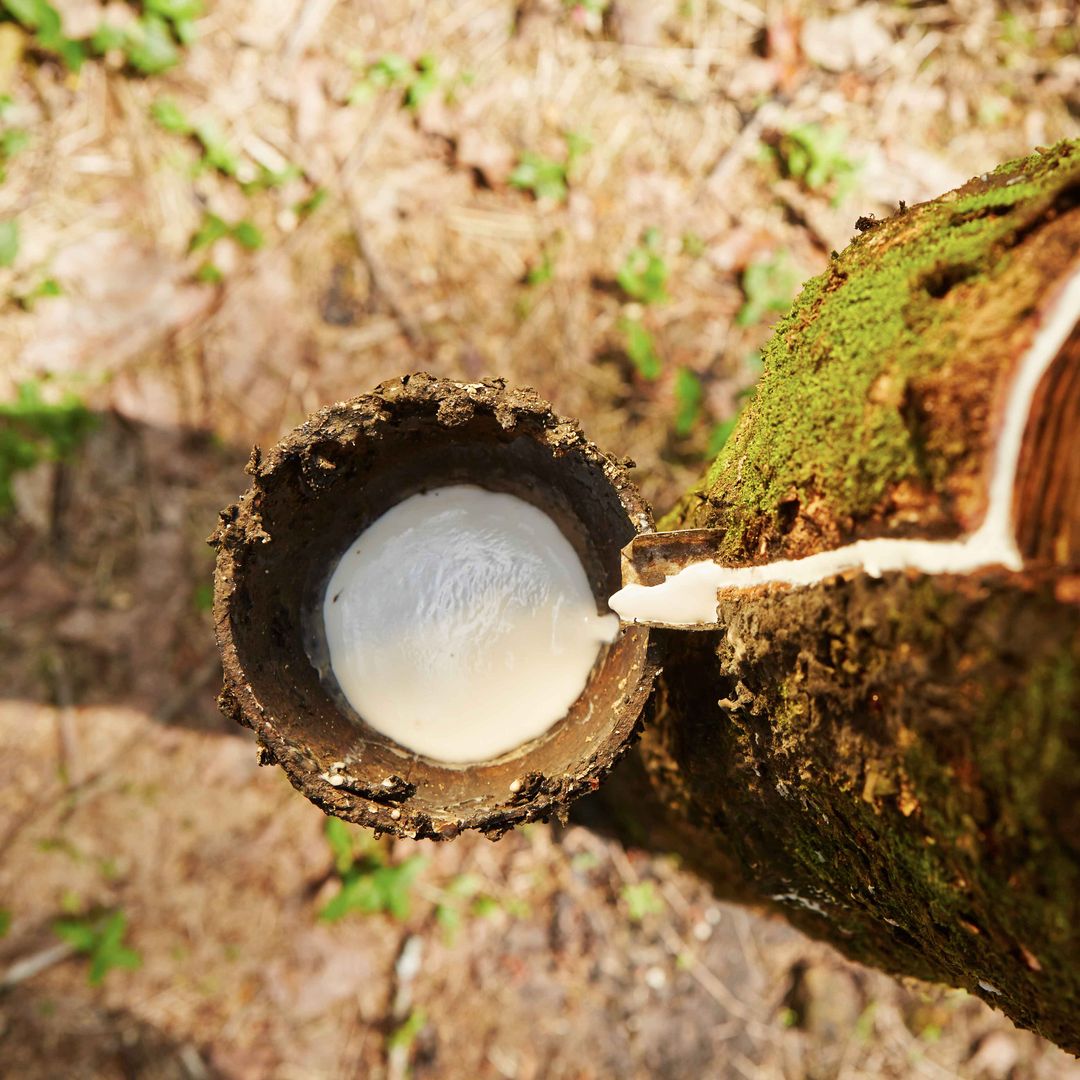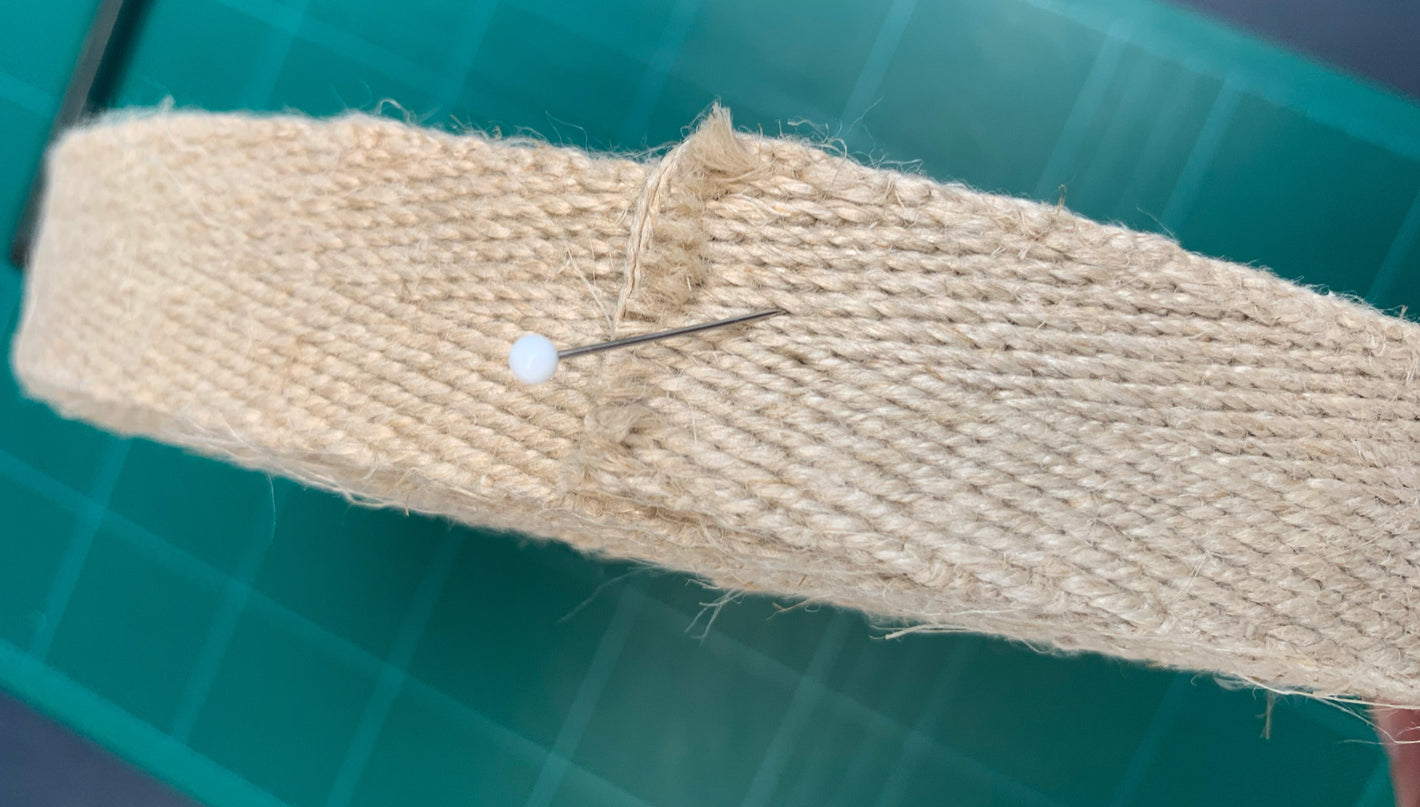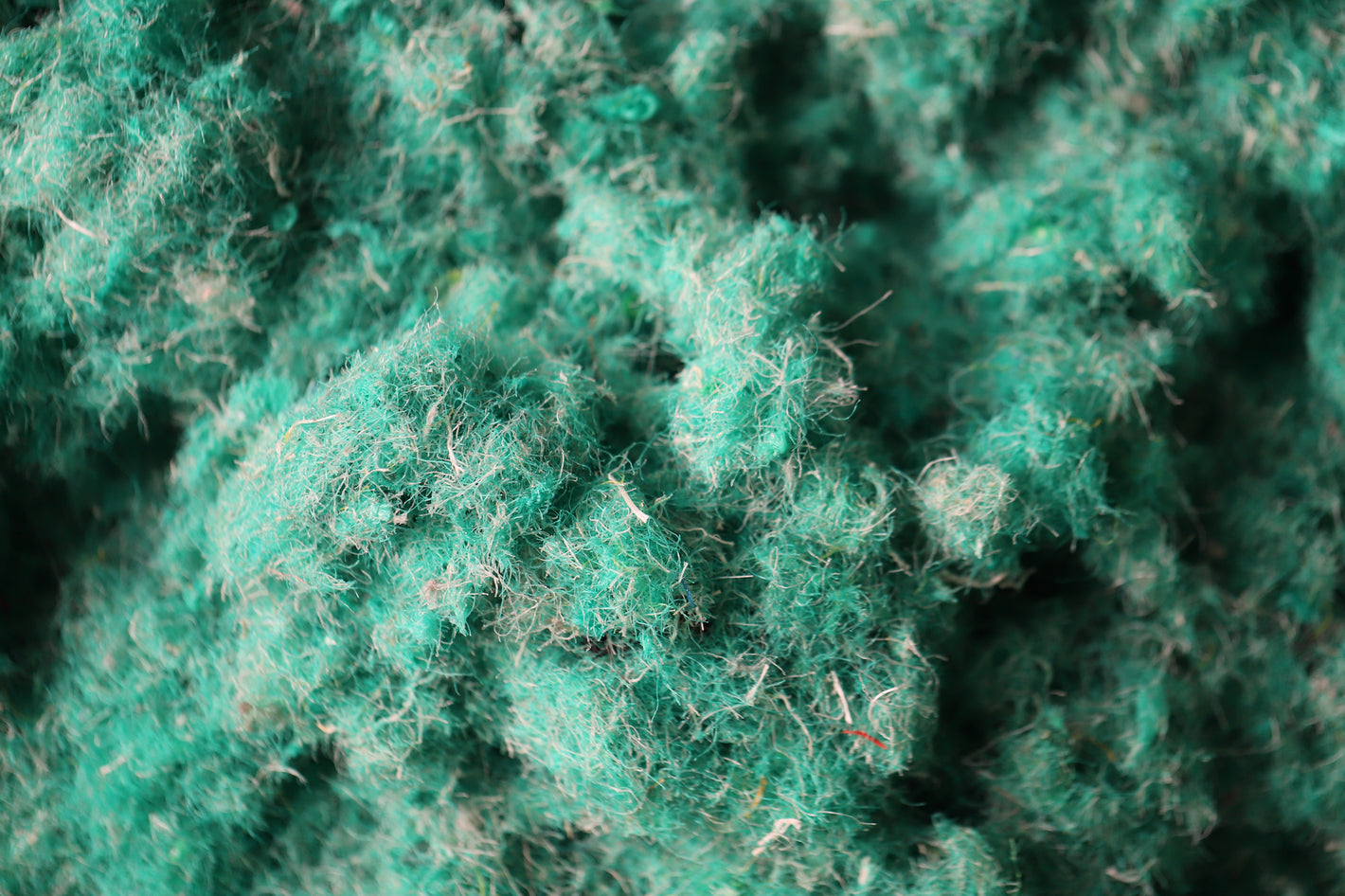Materials
We use recycled ripstop nylon and polyester for their strength and lightweight nature, ensuring your bag lasts a long time and reducing the need for frequent replacements. These qualities are hard to replicate with natural materials. Considering longevity, recycled nylon and polyester are currently our most sustainable options.
We are actively searching for a way to translate these same qualities into other materials. Hopefully, one day, we can say goodbye to all plastics, even recycled ones.
Ripstop
Ripstop means to 'stop' a 'rip'; ripstop fabrics are crafted using a reinforcing technique that enhances their resistance to tearing and ripping. During weaving, more robust (and often thicker) reinforcement yarns are interwoven regularly in a crosshatch pattern.
Small rips in our fabrics are typically inconsequential, thanks to the ripstop technology, which prevents further tearing. While these tiny holes are common and harmless, if your bag sustains substantial damage or is no longer usable, we offer a repair service.
Recycled materials
Wherever possible, we avoid using new raw materials. Instead, we make all our fabrics from recycled yarn.
Our recycled polyester thread is crafted from post-consumer waste, primarily sourced from plastic bottles and other discarded plastic components found in clothing and bedding. Our recycled nylon thread is derived from post-industrial waste, consisting of remnants from undyed and uncoated fabrics collected during spinning and weaving at our fabric mill.
Other plastic components such as buttons, nylon zippers, and care labels are also sourced from recycled materials. However, for certain elements like our waterproof zipper, we are still actively searching for a suitable recycled alternative.
Closed-loop system
Unfortunately, recycling used SUSAN BIJL bags remains a complex process.
The technology needed to recycle post-consumer nylon has yet to advance sufficiently for commercial use. Nylon requires melting at a lower temperature than many other recycling materials. Thorough cleaning is essential to prevent the survival of dirt and bacteria. Moreover, this recycling process produces weaker nylon than post-industrial recycled nylon.
Thankfully, the processes for recycling nylon are improving rapidly. We are seeking a factory to accept our used bags and prevent them from becoming waste, but we have yet to find one.
Mixed compositions in garments are a significant challenge for the post-consumer recycling industry, as all materials must be separated before processing. We are researching nylon alternatives for our polyester fabric to ensure our products have a uniform composition, laying the groundwork for a more efficient future recycling process.
As a small company, we rely on bigger companies to lead the development of recycling processes for treated fabric compositions. We closely monitor new developments in this field. If you have any information or insights for us, please don't hesitate to contact us here.
Denier
We produce our fabrics in three mass densities, called denier (D). Fabrics with a high denier count are thick and sturdy, while those with a low denier count tend to be more smooth.
-

40D
We use a thin and smooth nylon composition for our rainwear items. Its supple touch makes it super comfortable to wear.
-

70D
The original and most commonly used denier of our fabrics! It resembles the nylon found in kite stores, as used by Susan for the first prototype of the shopping bag.
-

300D
This sturdy fabric is used for our more boxy items, like the bum bag and backpack. Its thick coating makes these items waterproof.
Coating
The coating, applied to the inner side of the fabric, defines the hand feel of our material. It enhances the strength and durability of the fabric while providing water resistance or waterproofing.
We have been using a TPE coating for all our fabrics, a standard C6 PU coating. Starting from early 2023, the coating for 70D has been Bluesign-approved, while the coating for 300D is made from recycled TPE.
Made without PFAS
We are transitioning all our coatings to non-fluorinated alternatives by 2025!
Bluesign© dyeing
Our dye house is Bluesign certified. The Bluesign system aims to address sustainable textile production by eliminating harmful substances throughout the supply chain and approving chemicals, processes, materials, and products that are safe for the environment, the workers and customers. For example, all the water used in the process is thoroughly cleaned before it leaves the factory sewer.
Beyond the fabrics
A product consists of much more than the fabric used. We also ensure that the inside details of our products are made from the best possible materials.
-

YULEX®
YULEX® is a natural rubber alternative developed with Patagonia for their neoprene wetsuits. It has replaced the synthetic neoprene used in the past to make laptop pockets and sleeves.
YULEX® presents the same qualities as its predecessor: soft, thick and reliable for many years of protection. -

Hemp
Hemp is renowned for its exceptional durability and longevity, with minimal environmental impact during its growth and processing compared to other natural fibres. As a renewable resource, hemp grows rapidly and robustly in diverse climates, requiring minimal water and enriching the soil by replenishing essential nutrients.
We use hemp for handles and straps. -

Recycled components
We create our labels and zippers from recycled nylon yarn.
For the plastic bottom panel in our medium bum bag, we use ReTraze EcoPanel, which is made from 100% recycled high-density polyethylene (HDPE) (100% discarded fishing nets).
Do you have tips, information or questions?
Please don't hesitate to contact us at support@susanbijl.nl!









